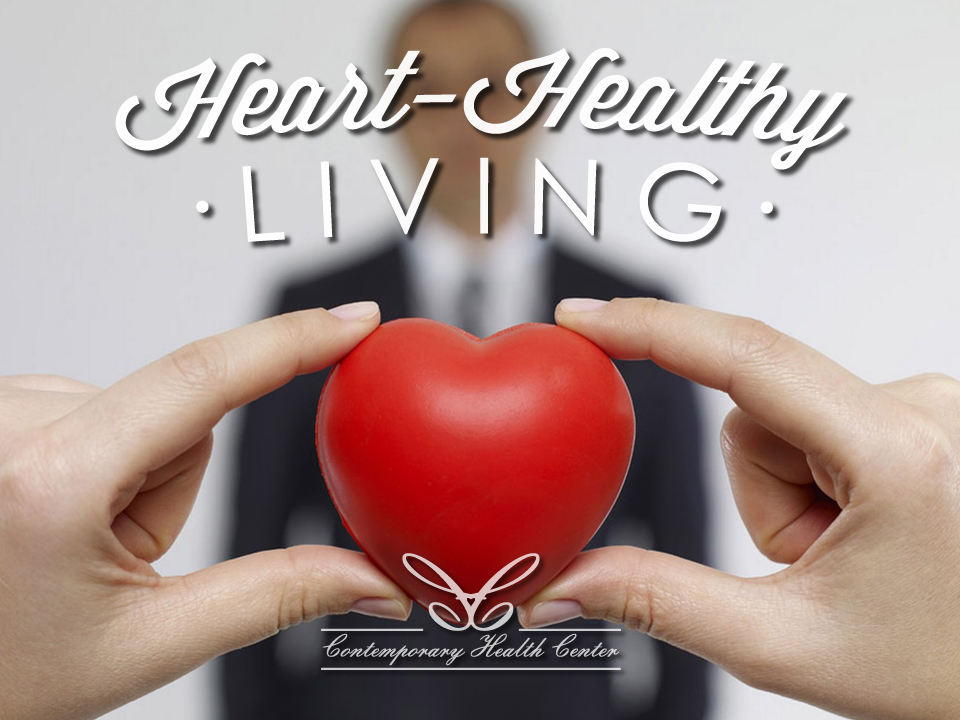According to the CDC, heart disease is the leading cause of death in the United States. Due, in part, to the accessibility we have to less-than-healthy food choices and our collective ability to live sedentary lifestyles while still making a living. Managing your weight, regularly visiting your healthcare professional and keeping an eye on risk factors are important to your cardiovascular well-being. Here are a few more steps you can take toward becoming more heart healthy.
Go Green.
It’s no secret that fruits and vegetables are great for your body. They’re low in calories, rich in dietary fiber and chock full of vitamins and minerals that help your body with its natural processes. With that in mind, it’s important to note that not all fruit and vegetable products are equal. When making fruit and vegetable choices, it’s important to eat them fresh. That means you should be eating it with the fewest number of steps between where it was growing and your plate!
Take a good look at labels before you choose produce that’s not fresh. You should avoid canned vegetables that are full of salt, canned fruit (packed in heavy syrup), frozen fruit with sugar added and any vegetables that are fried or breaded.
Get Your Fats Straight.
While some fad diets encourage a low- to no-fat diet, it’s a myth that all fats are equally bad for you. In fact, many foods that are labeled “low fat” are full of sugar, refined carbohydrates and empty calories. It’s true that trans fats and saturated fats aren’t good for you. But dietary fats like monounsaturated fats and polyunsaturated fats can actually lower your cholesterol.
It’s heart healthy to limit those bad fats found in things like butter, lard, animal fat and cocoa butter. When you do choose fats, choose monounsaturated fats like the ones found in olive oil or canola oil.
Diet is an important aspect of heart health, but it’s not the only factor to consider. Read on for three more steps toward better heart health.
Get Moving!
Don’t forget that your heart is a muscle. Cell-for-cell, it’s actually one of the strongest muscles in your body. Just like the rest of your muscles, your heart needs good, regular exercise. Curls and bench presses are great for building big pecs and giant biceps, but when it comes to heart-healthy exercise, aerobic activity is key.
Activities like jogging, walking, biking or swimming are great choices for keeping physically active. Now, this doesn’t mean you need to run miles every day. But plan on spending between 20 and 45 minutes per day exercising. You should vary your activity level, as well. Try and ramp up the intensity of your workouts a couple times a week for the best cardiovascular results.
It should be noted that some exercise is better than no exercise. Remember that everyone has to start somewhere!
Stress Less.
Stress is one of the worst forces you can apply to your body. Stress invades nearly every aspect of your health – from your mental and emotional health, to your physical well-being. Sometimes, it’s not possible to control the things that are happening around you. But you can control how you deal with those outside factors.
Practice good stress management and take an active interest in maintaining a good balance to your life. Look into activities such as meditation, yoga or even martial arts as a way to better handle life’s curveballs.
Cut the Butts.
Did you know that smoking is one of the most preventable causes of premature death in the United States? Besides directly increasing the risk of coronary disease, smoking can also affect OTHER risk factors for heart disease. Smoking decreases your tolerance for physical activity and increases the tendency for your blood to clot when it’s not supposed to.
Smoking also decreases your HDL (good) cholesterol, creates a higher risk for arterial diseases and is also a major risk factor for stroke. We go out of our way to eat clean food and drink clean water. It’s also important to breathe clean air.
While there are many products and systems that can help you quit smoking, the most important step is actually deciding to quit. Your lungs actually begin to heal themselves as soon as you stop smoking. And while it can some time to completely remove the effects of smoking, every day you’re smoke-free is a day closer to good heart health.


